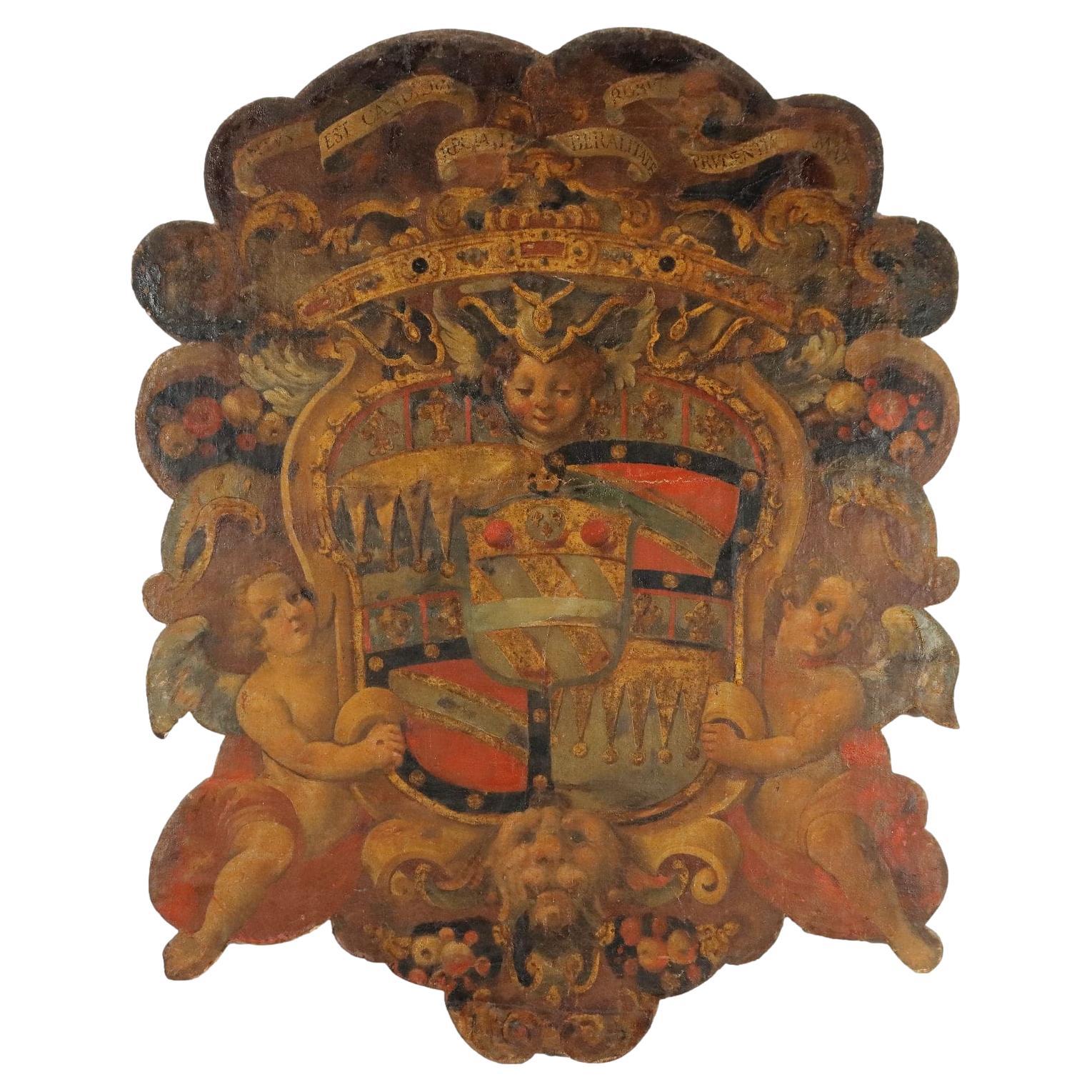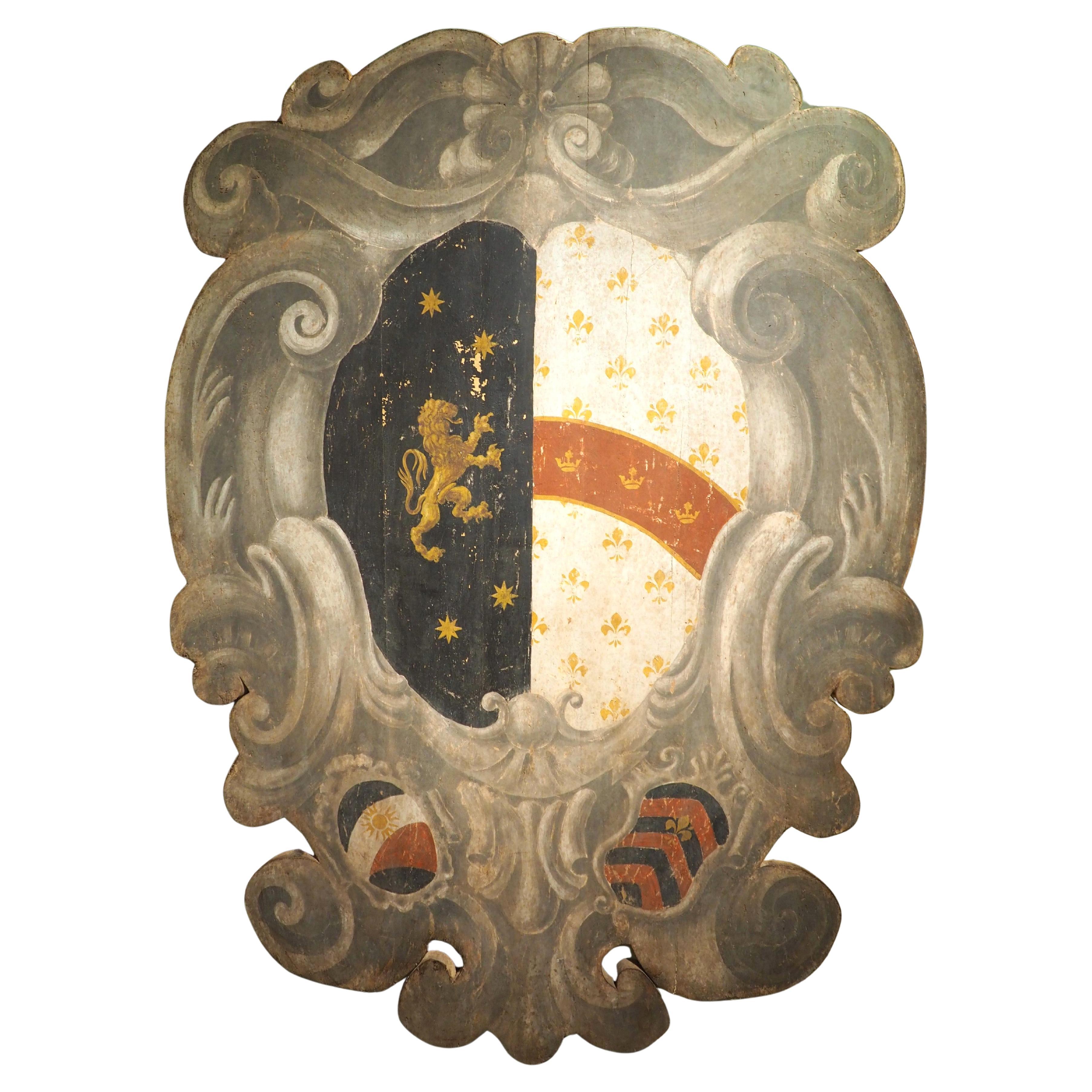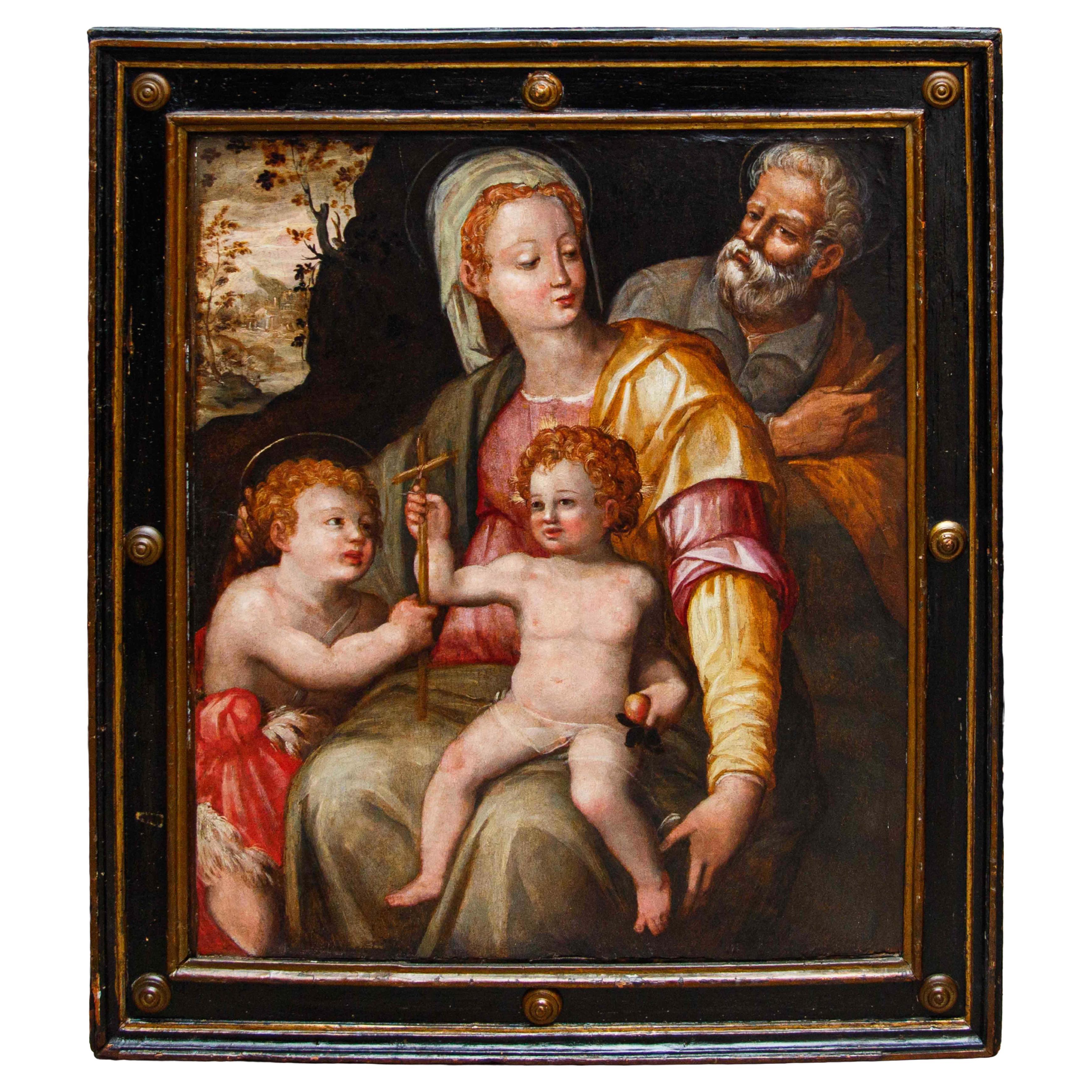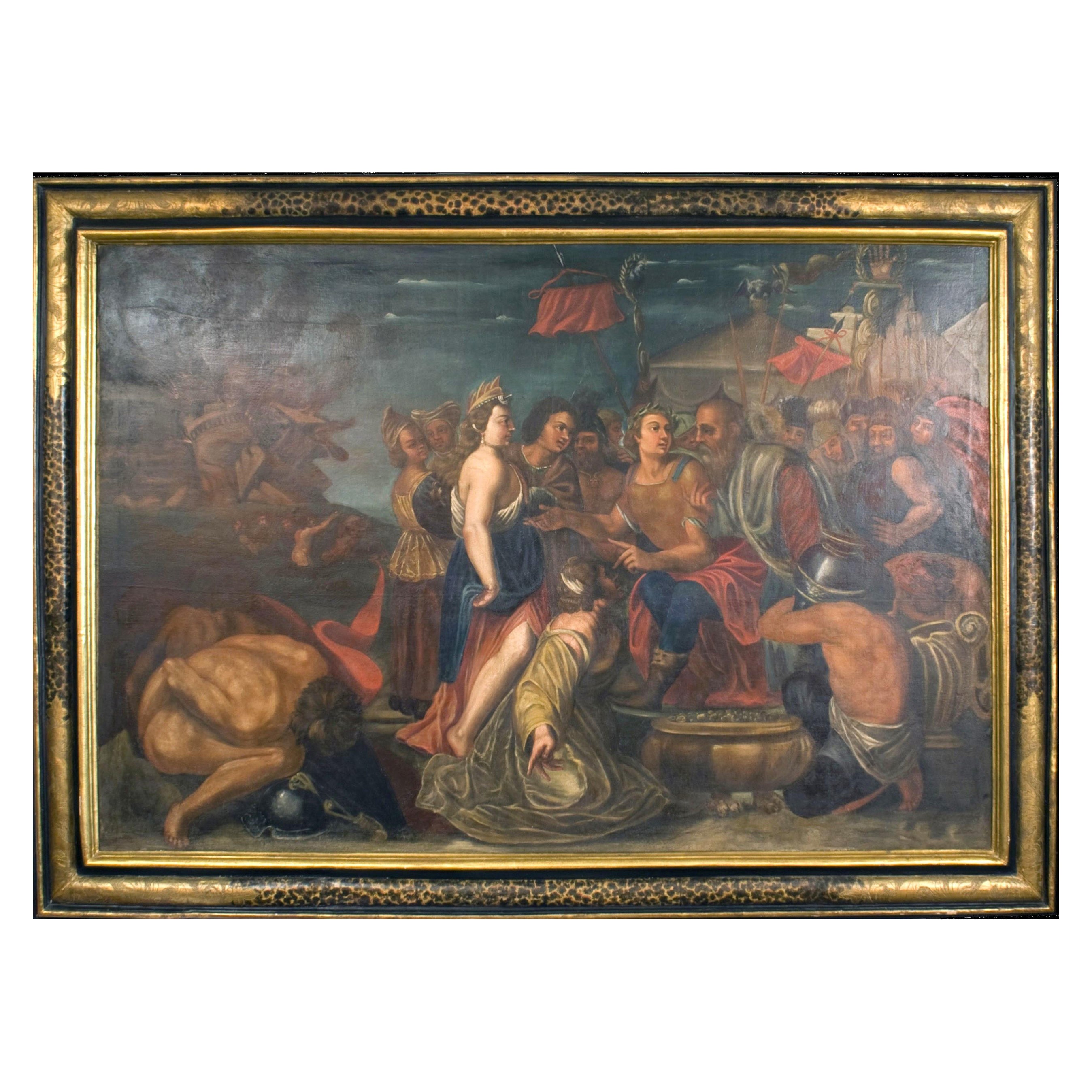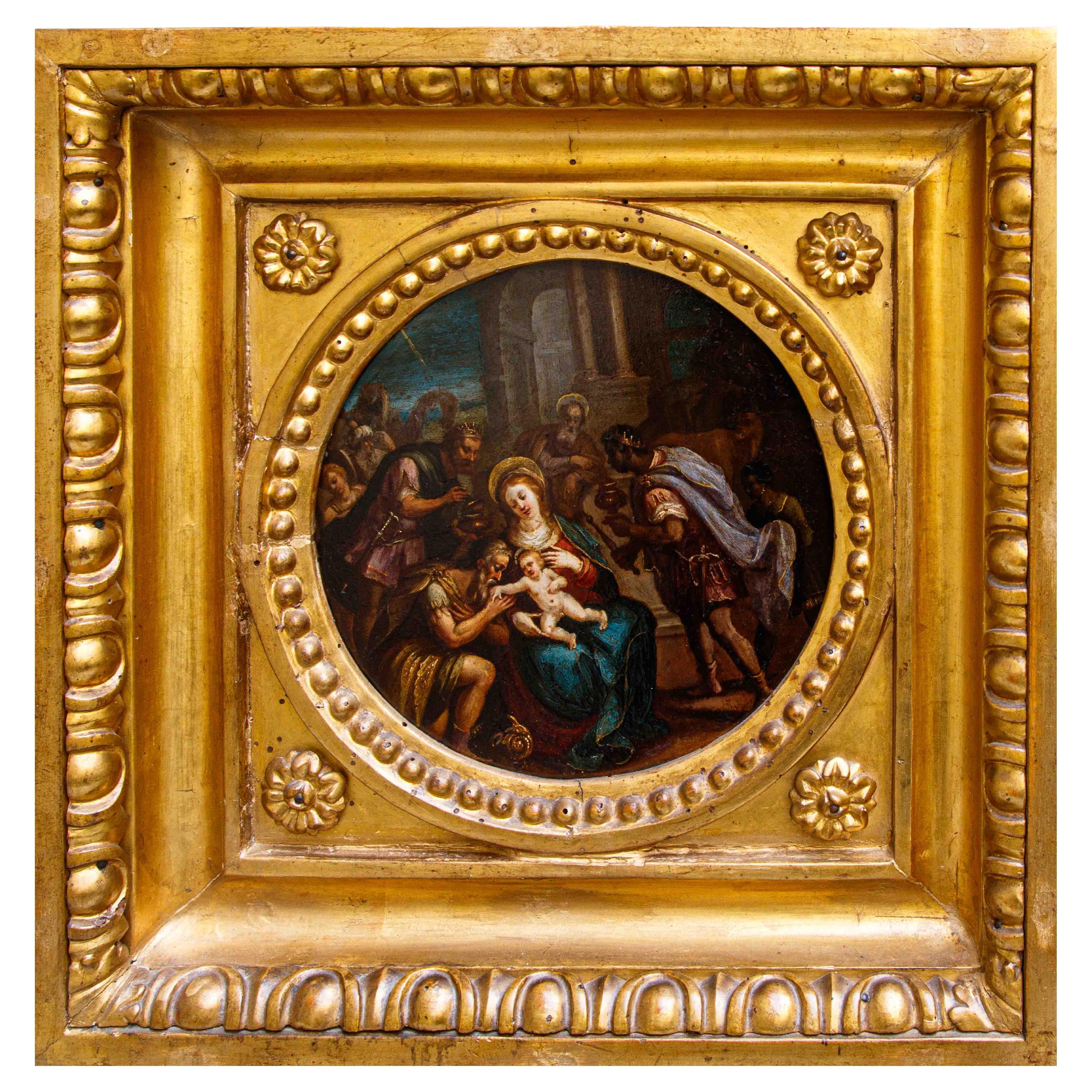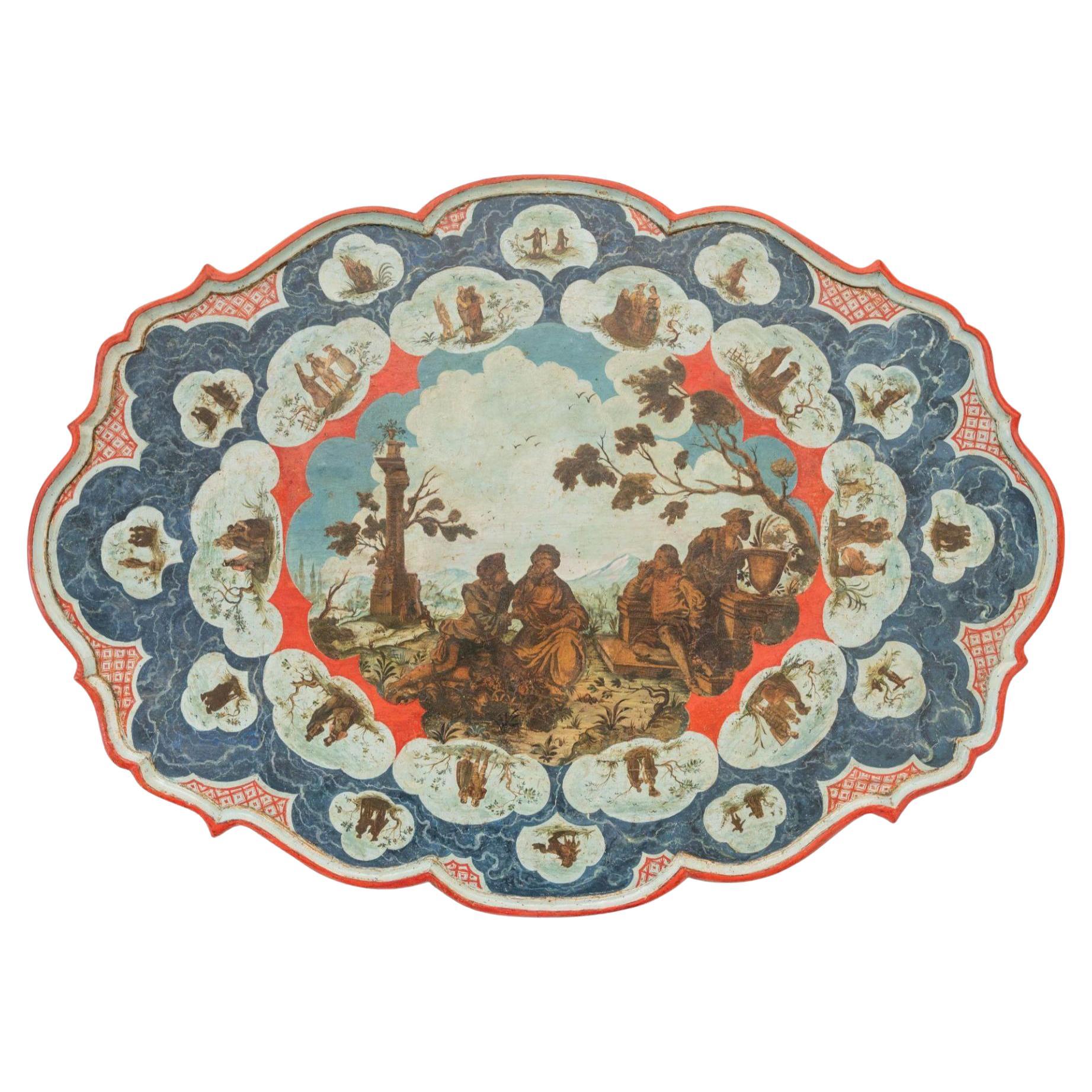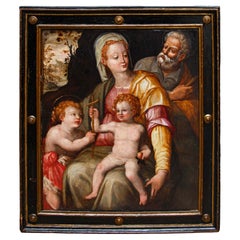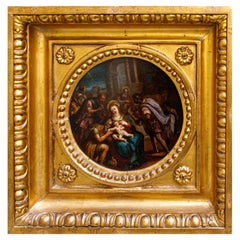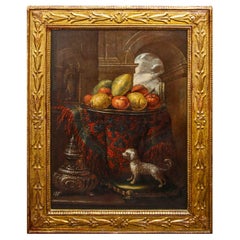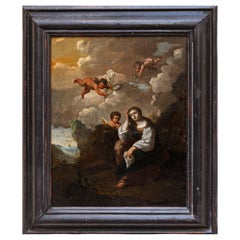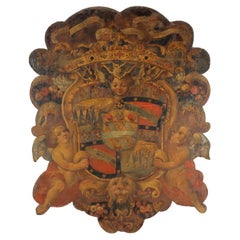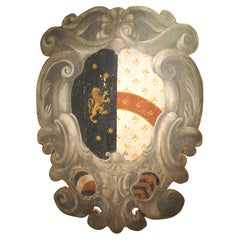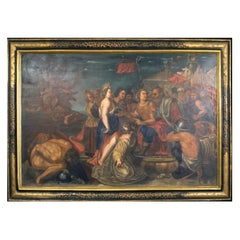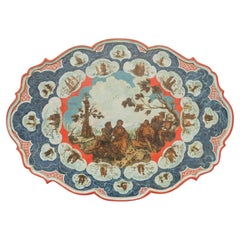Items Similar to Lombardy, 14th century, Formelle with Sormani family coat of arms and portraits
Want more images or videos?
Request additional images or videos from the seller
1 of 15
Lombardy, 14th century, Formelle with Sormani family coat of arms and portraits
$5,080.25per set
£3,807.96per set
€4,300per set
CA$6,979.39per set
A$7,791.84per set
CHF 4,082.81per set
MX$95,379.74per set
NOK 51,851.67per set
SEK 48,889.55per set
DKK 32,733.17per set
About the Item
Lombardy, 14th century
Tiles with Sormani family coat of arms and portraits
(3)Tempera on panel, 17 x 38 cm
Between the 15th and 16th centuries, especially in Lombardy and Piedmont, in aristocratic mansions and public buildings it became fashionable to decorate ceilings with painted wooden panels: the 'ceiling panels' or 'formelle.' The birth and spread of the use of painted tablets in architecture can be traced back as early as the Middle Ages in Europe and in Italy in South Tyrol and Trentino, essentially in castles and stately homes. The ceilings of the great halls were made of wood, made with long beams running across them in the direction of width, driven into the wall with a load-bearing function and fitted with corbels to take the weight off. Small wooden joists at regular spacing between rafters completed the structure of the ceilings, resulting in square or rectangular geometric squares. The space created by the meeting between the main beam and the joists perpendicular to it will be used to insert the planks, as a decorative element.
The painted tablets, made mainly in tempera with a vivid color palette, represent a fundamental testimony to the artistic and cultural expressions that flourished in northern Italy, particularly in Lombardy and Piedmont, between the 14th and 15th centuries. This period, straddling the Gothic and Humanist eras, was characterized by a marked predilection for color, which extended to the decoration of every domestic surface, transforming interiors into true narrative spaces. The tiles, then, were not mere decorative elements, but true "repertories of civilization," capable of immortalizing celebrations and scenes of daily life. Unlike other coeval pictorial productions, local tablet painting, with rare exceptions, is distinguished by its predominantly secular character. Iconographic analysis reveals certain dominant subjects and ideas that permeated the culture of the time. Family prestige emerges as a central theme, expressed through the depiction of coats of arms of families united by complex marital and political alliances. Literary culture, both ancient and contemporary, found space in the depictions, as did the dreams and visions of the collective imagination.Frequently, figures of ladies and gentlemen appear, immersed in contexts that enhance their social status. Dancing, musical, and playful putti wind through festoons, flanked by a diverse bestiary, including both real animals and fantastic creatures.
The widespread presence of heraldic coats of arms is another distinguishing feature of these works. Noble families were immortalized on these valuable wooden pages, leaving an indelible trace of their presence and power. And indeed, the coat of arms of one of Milan's oldest and richest families makes an appearance in the tablets under review: the Sormani family, as is well illustrated by the figure of the rampant lion holding a turreted castle in its hands. Ancient Milanese patrician family, originally from Sormano, an alpine village in the mountains of Vallassina. The earliest historical records go back to Ottone De Solmanno, of Anselmo, a partisan of Frederick Barbarossa in the fight against Milan. The Sormani family held important public offices, such as decurion, and became linked to other noble Milanese families, contributing significantly to the city's history and culture.Their name is particularly linked to the figure of Giacomo Sormani, who in the 18th century commissioned the renovation of Palazzo Sormani in Milan, now home to the Biblioteca Comunale Centrale, one of the most important examples of neoclassical architecture in Lombardy. Over the centuries, the family boasted jurists, men of letters and men-at-arms among its members, consolidating its prestige. Even today, their names are still remembered in various places and institutions, evidence of their lasting impact on the city of Milan and Lombardy.
The remaining two formals present two portraits of a woman and young man, according to the fashion of the time treated in profile, influenced by numismatics and classical portraiture.
- Dimensions:Height: 6.7 in (17 cm)Width: 14.97 in (38 cm)Depth: 0.79 in (2 cm)
- Sold As:Set of 3
- Style:Other (Of the Period)
- Materials and Techniques:Wood,Oiled
- Place of Origin:
- Period:
- Date of Manufacture:14th century
- Condition:Wear consistent with age and use.
- Seller Location:Milan, IT
- Reference Number:1stDibs: LU5918245664082
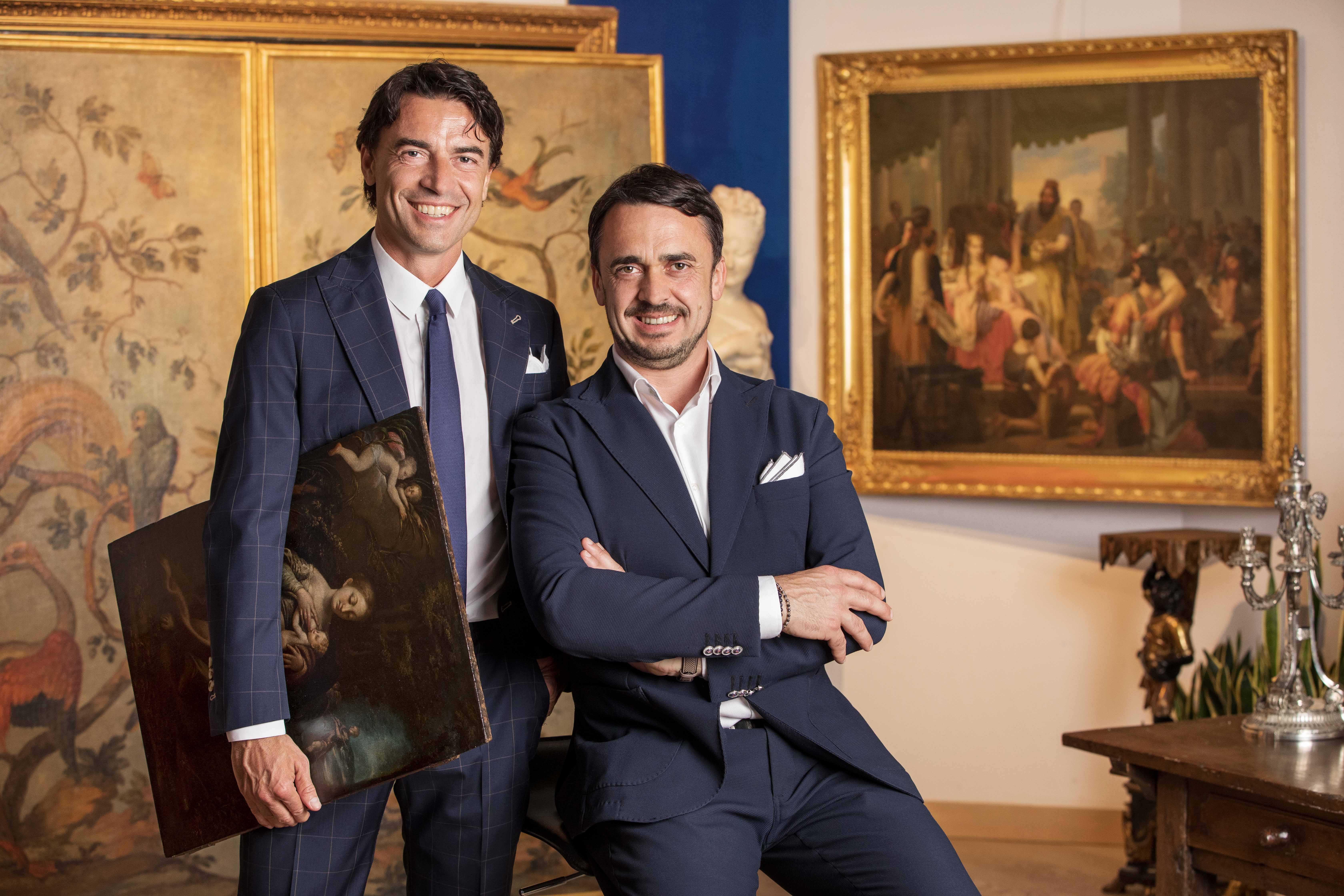
About the Seller
5.0
Vetted Professional Seller
Every seller passes strict standards for authenticity and reliability
Established in 2000
1stDibs seller since 2021
30 sales on 1stDibs
- ShippingRetrieving quote...Shipping from: Milan, Italy
- Return Policy
Authenticity Guarantee
In the unlikely event there’s an issue with an item’s authenticity, contact us within 1 year for a full refund. DetailsMoney-Back Guarantee
If your item is not as described, is damaged in transit, or does not arrive, contact us within 7 days for a full refund. Details24-Hour Cancellation
You have a 24-hour grace period in which to reconsider your purchase, with no questions asked.Vetted Professional Sellers
Our world-class sellers must adhere to strict standards for service and quality, maintaining the integrity of our listings.Price-Match Guarantee
If you find that a seller listed the same item for a lower price elsewhere, we’ll match it.Trusted Global Delivery
Our best-in-class carrier network provides specialized shipping options worldwide, including custom delivery.More From This Seller
View All16th century, Tuscan school, Holy family with St. John
Located in Milan, IT
16th century, Tuscan school
Holy Family with St. John
Oil on panel, 82x71 cm
Framed, 92x81 cm
The term maniera, already in use in the Tuscan area in the 15th century, took on a s...
Category
Antique 18th Century and Earlier Italian Other Paintings
Materials
Wood
17th century, Flemish School, Adoration of the Magi
Located in Milan, IT
17th century, Flemish School
Adoration of the Magi
Oil on copper, diam. 19.5 cm
Framed 35.3 x 35.3 cm
Engraved on the back in seventeenth-century calligraphy "Fiamingo"
Vivid wo...
Category
Antique 18th Century and Earlier Dutch Other Paintings
Materials
Copper
Roman school, second half of the 17th century, Composition with lemons and small dog
Located in Milan, IT
Roman school, second half of the 17th century
Composition with lemons and small dog
Oil on canvas, 97.5 x 74.5 cm
Framed, 120 x 95 cm
The work we describe here can be framed in t...
Category
Antique 18th Century and Earlier Italian Other Paintings
Materials
Canvas
Flemish artist active in Italy, 17th century, Penitent Magdalene
Located in Milan, IT
Flemish artist active in Italy, 17th century
Penitent magdalene
Oil on panel, 37.5 x 30.5 cm
Framed, cm 53 x 45
Provenance: Luigi Bellini Gallery, Florence; Private Collection, ...
Category
Antique 18th Century and Earlier Dutch Other Paintings
Materials
Canvas
Flemish artist active in Italy, 17th century, Penitent Magdalene
Located in Milan, IT
Flemish artist active in Italy, 17th century
Penitent magdalene
Oil on panel, 37.5 x 30.5 cm
Framed, cm 53 x 45
Provenance: Luigi Bellini Gallery, Florence; Private Collection, ...
Category
Antique 18th Century and Earlier Dutch Other Paintings
Materials
Canvas
Lombard school, 17th century, Still life with flowers
Located in Milan, IT
Lombard School, 17th century
Still Life with Flowers
Oil on canvas, 52 x 60 cm
Framed, 67 x 76 cm
The oil on canvas under consideration, depicting a floral jubilation emerging f...
Category
Antique 17th Century Other Paintings
Materials
Canvas
You May Also Like
Large Baroque Noble Coat of Arms Italy Late 17th Early 18th Century
By Non-Standard Furniture and Lighting
Located in Milano, IT
Large aristocratic coat of arms placed within crumpled, symmetrically unfolding, made of polychromatically painted and partially gilded wood. The frame is decorated with scrolls and ...
Category
Antique Early 18th Century Italian Baroque Historical Memorabilia
Materials
Wood
Large Scale Carved and Painted Italian Coat of Arms Panel from Florence, H-78.5
Located in Dallas, TX
Constructed from salvaged antique wood that has been reinforced with more recent boards, this large-scale coat of arms shield has an outward curve, reminiscent of the bend of a real ...
Category
21st Century and Contemporary Italian Paintings
Materials
Wood, Paint
Large historical painting 18th century, Italian school
Located in Cesena, FC
Large historical painting 18th century, Italian school
"Darius' mother pleading before Alexander after the battle of Issus."
Oil on canvas 210 x 290 cm
Painted with great strength...
Category
Antique Late 18th Century Italian Paintings
Materials
Canvas, Wood, Giltwood
Decorative lacquered and painted wooden panel from the 18th century, Venice.
Located in Vicenza, IT
This magnificent example of Venetian lacquer art dates back to the 18th century and represents the craftsmanship typical of the period. The tray, shaped and embellished with a comple...
Category
Antique Mid-18th Century Italian Louis XV Decorative Art
Materials
Wood
Quadri "LEONI DI VENEZIA" Gio Magri, Set di 2, 1970s
Located in Manzano, IT
Quadri "LEONI DI VENEZIA" Gio Magri, Set di 2, 1970s
Presenti piccoli fori ai 4 angoli
Stile Vintage
Periodo del design 1970 - 1979
Periodo di produzione 1970 - 1979
Anno di produz...
Category
Vintage 1970s Italian Decorative Art
Materials
Paint
$13,823 Sale Price
35% Off
Carved shelf in gilded wood - Florence, mid-19th century
Located in Vicenza, IT
Fine Florentine shelf dating from the mid-19th century, entirely hand-carved in solid wood and finely gilded with gold leaf. The work features very rich sculptural work, with phytomo...
Category
Antique Mid-19th Century European Louis Philippe Shelves and Wall Cabinets
Materials
Gold Leaf
